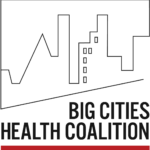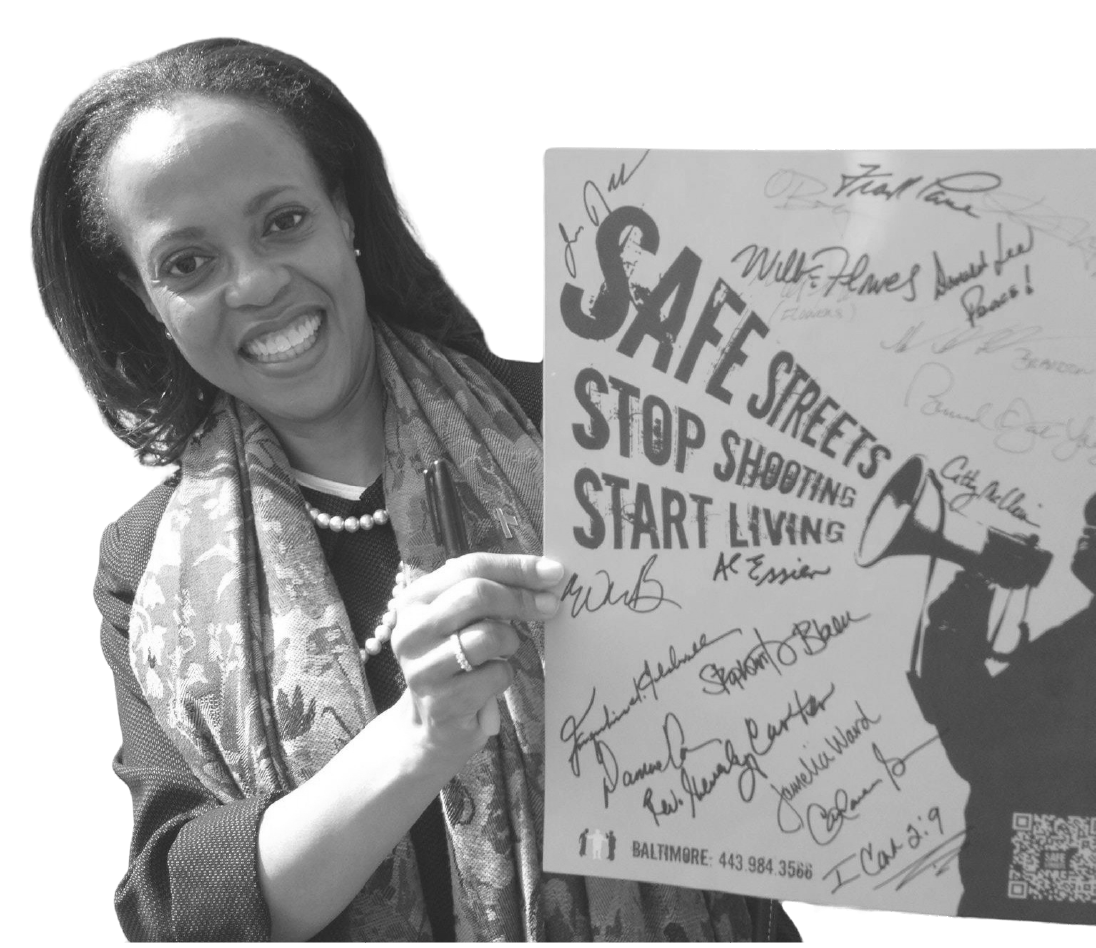2023 annual report
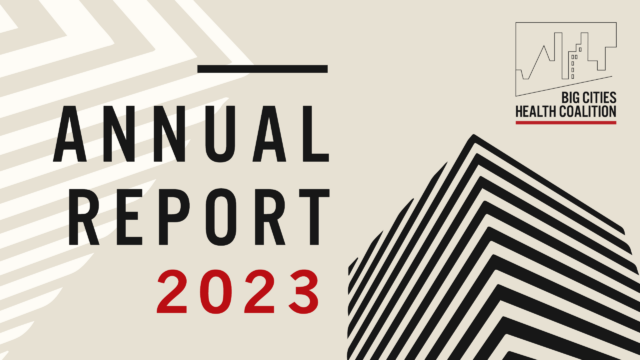
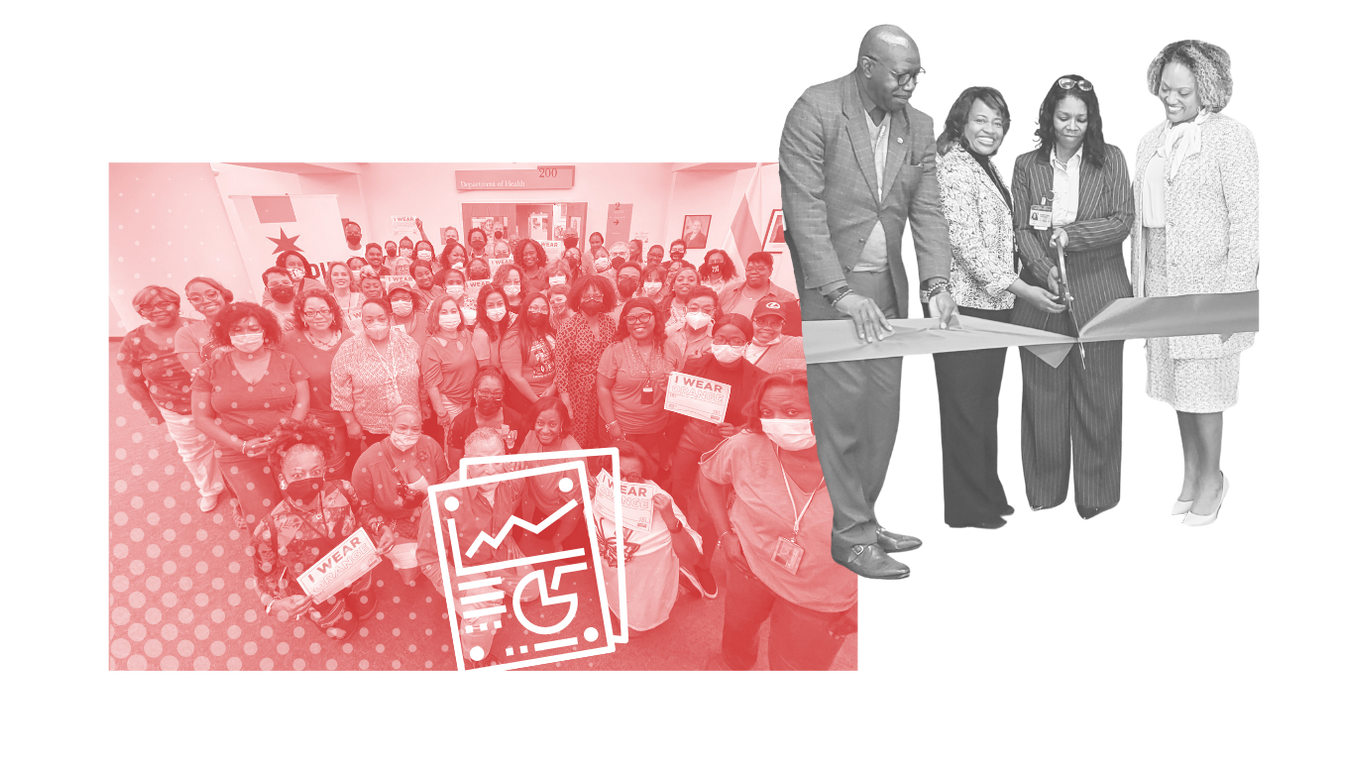
ANNUAL
REPORT
In 2023, the Big Cities Health Coalition (BCHC) and its members continued to address the many public health issues left in the wake of the COVID-19 pandemic, including elevated deaths, injuries, and chronic illness from drug overdose, gun violence, and tobacco and nicotine use.
Even as cities felt the deep effects from these issues and the health disparities that are the ongoing legacy of racism, BCHC has had to fight to maintain (let alone improve) federal funding to governmental public health. A long overdue injection of support from CDC’s public health infrastructure grants has allowed many big city health departments to sustain and build upon critical work to protect the public’s health.
While BCHC was founded more than 20 years ago, 2023 marked our first year as an independent nonprofit organization. In the past year we have doubled our staff in part to enable deeper engagement with key staff in member health departments, including not just directors, but also senior deputies, workforce directors, data modernization leads, and communications staff.
We look forward to building on this year’s successes and pressing on shared challenges as we continue to support our members in their work to protect and promote the public’s health.
WHO WE ARE
- The Big Cities Health Coalition (BCHC) is a forum for the leaders of America’s largest metropolitan health departments to exchange strategies and jointly address issues to promote and protect the health and safety of the 61 million people they serve.
- Together, these public health officials directly affect the health and well-being of nearly one in five Americans.
Letters from Leadership

Mysheika W. Roberts, MD, MPH
Commissioner
Columbus Public Health
BCHC Board Chair, January–March 2023

Philip Huang, MD, MPH
Director and Health Authority
Dallas County Health and Human Services
BCHC Board Chair, April–December 2023

Chrissie Juliano, MPP
Executive Director
Strength in Numbers

$747
million
in CDC Public Health Infrastructure Grant funding that BCHC members have begun investing in local public health infrastructure and workforce
in CDC Public Health Infrastructure Grant funding that BCHC members have begun investing in local public health infrastructure and workforce
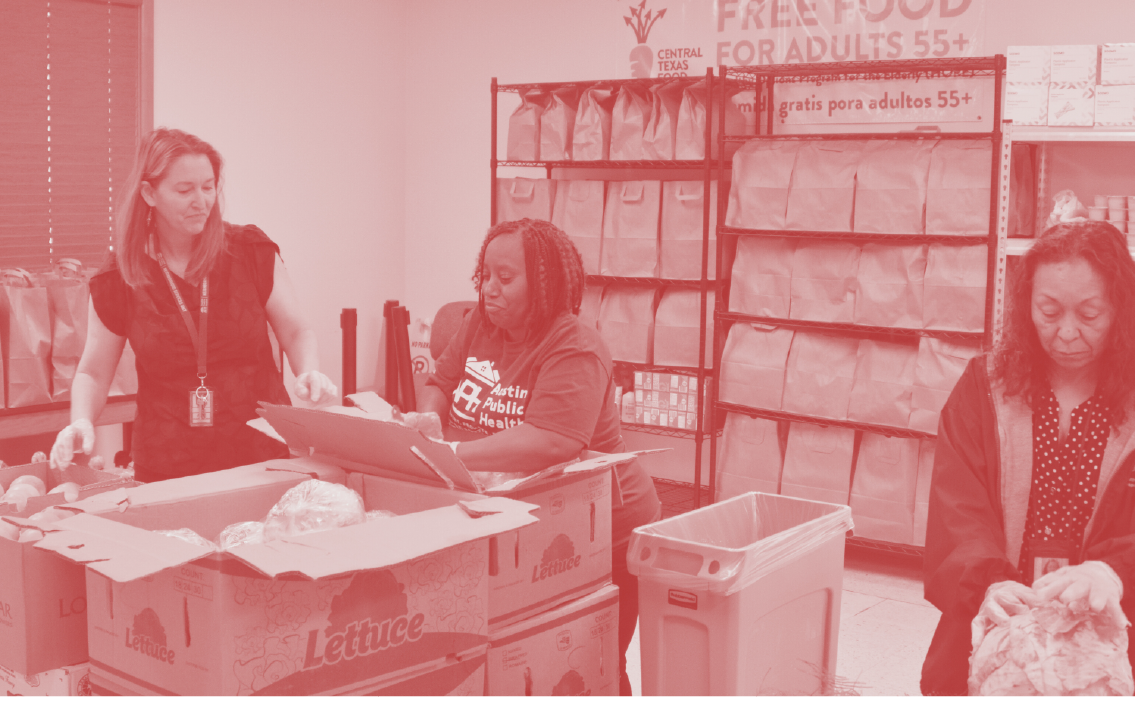
140
LETTERS
to members of Congress and the Administration written and/or signed by BCHC
to members of Congress and the Administration written and/or signed by BCHC

3
Billion
combined audience (reach) for articles featuring BCHC experts
3
Billion
combined audience (reach) for articles featuring BCHC experts
733
attendees
at 4 webinars on Cities: The Future of Health
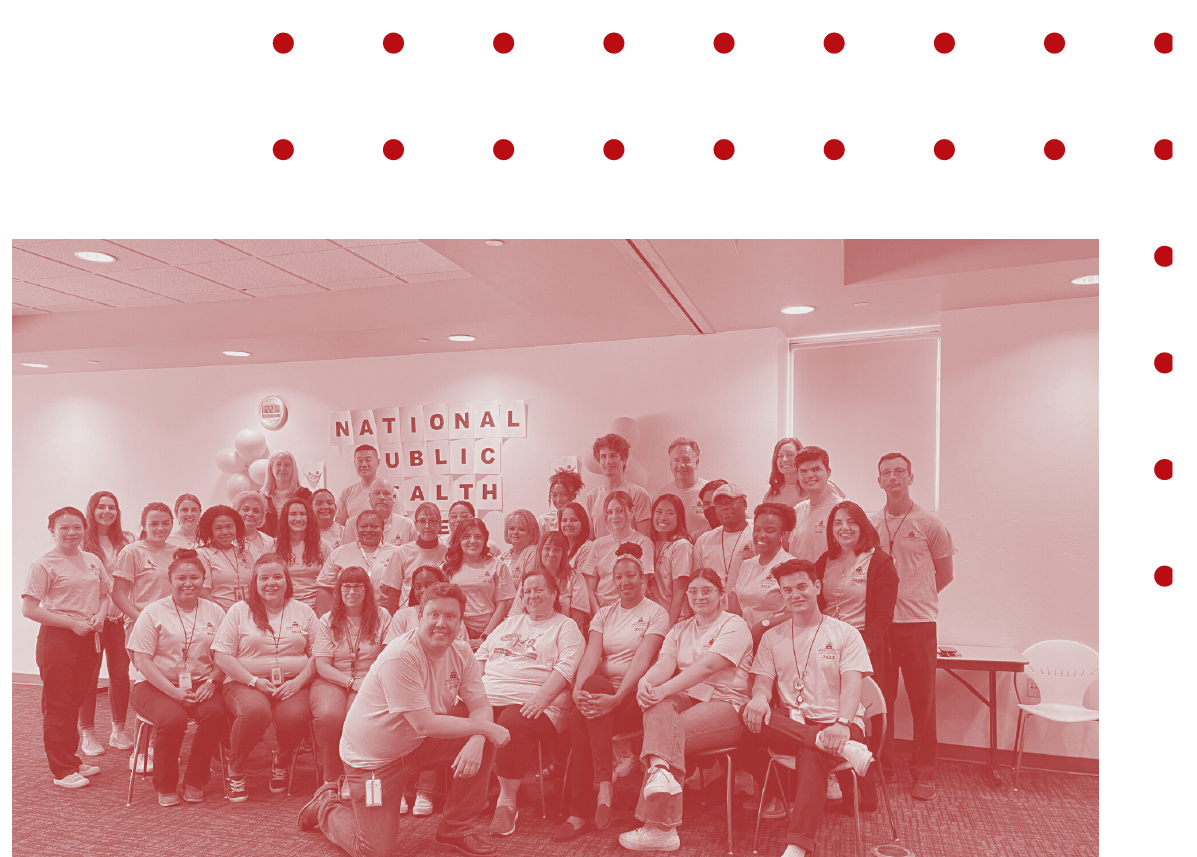
Thought Leadership and Advocacy
JANUARY

Anational ad campaign, designed to change the conversation about violence prevention and created by BCHC andPrevention Institute, reaches about 12 million Americans.
The BCHC senior deputies cohort convenes in Atlanta with CDC leadership.
Mysheika Roberts, MD, MPH, Commissioner at Columbus Public Health, and Allison Arwady, MD, MPH, then Commissioner at Chicago Department of Public Health, join forces to explain the consequences of continuing to underfund public health.
In our second Cities: The Future of Health webinar, the Multnomah County Health Department describes their collaboration with Black farmers to improve equitable accessibility and affordability of healthy food.

FEBRUARY
Burnout and stress rose sharply among governmental public health workers in 2021, with 29% reporting symptoms that indicate probable Post Traumatic Stress Disorder (PTSD), according to BCHC analysis of data from thePublic Health Workforce Interests and Needs Survey (PH WINS).
In a webinar, the Maricopa County Department of Public Health details how they work closely with community during their health needs assessments.
BCHC members and staff meet in DC to discuss public health strategy with each other and members of the Administration. Many members then participate in NACCHO’s annual Hill Day to express local public health needs to their Congressional representatives.
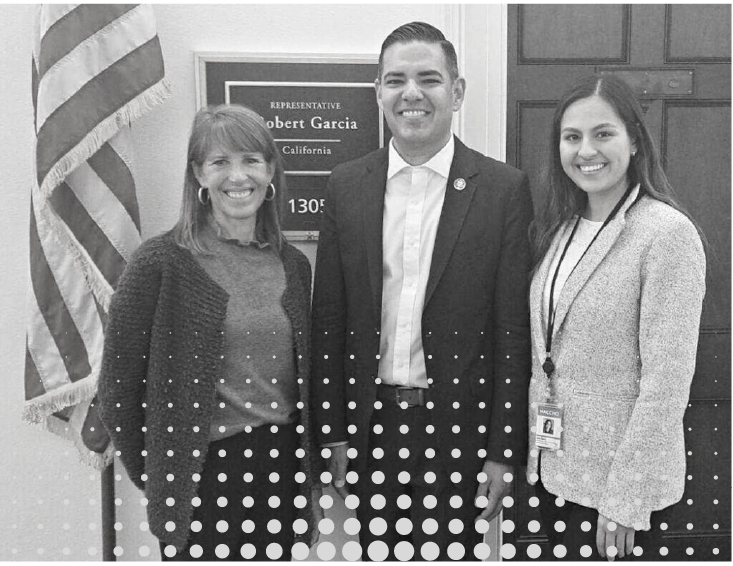

March
BCHC releases its top public health policy and funding priorities for the 118th Congress.The brief focuses on pandemic preparedness, public health infrastructure and capacity, injury and violence prevention, overdose prevention, and tobacco flavor regulation.
As Congress considers reauthorizing the Pandemic and All-hazards Preparedness Act, BCHC releases a brief outlining key priorities. The brief demonstrates how funding for public health and hospital emergency preparedness have stalled over the last two decades, even as health emergencies have increased in frequency and intensity.
BCHC makes a detailed case to the Senate for sustained, predictable funding for the governmental public health workforce, in response to a request for information from the Committee on Health, Education, Labor, and Pensions (HELP).
As drug overdose deaths continue to mount, BCHC recommends that the Drug Enforcement Agency (DEA) and Substance Abuse and Mental Health Services Administration (SAMHSA) remove barriers to lifesaving treatments for people with opioid use disorders.
In the news
In 2023, BCHC appeared in more than 500 media stories as cited experts on issues such as vaccine-preventable diseases, menthol restrictions, and the end of the COVID-19 public health emergency.
Check out these featured stories:
Financials

|
Revenue |
Without Donor Restrictions | With Donor Restrictions |
Total |
| Foundation & corporate grants & contributions | $143,393 | $810,033 | $953,426 |
| Federal pass-through funding | $669,183 | $669,183 | |
| Interest | $11,341 | $11,341 | |
| Membership | $357,750 | $357,750 | |
| Other revenue | $23,106 | $23,106 | |
| Net assets released from donor restrictions | $1,009,050 | ($1,009,050) | |
| Total support and revenue | $2,213,823 | ($199,017) | $2,014,806 |

|
Revenue |
Without Donor Restrictions | With Donor Restrictions |
Total |
| Foundation & corporate grants & contributions | $143,393 | $810,033 | $953,426 |
| Federal pass-through funding | $669,183 | $669,183 | |
| Interest | $11,341 | $11,341 | |
| Membership | $357,750 | $357,750 | |
| Other revenue | $23,106 | $23,106 | |
| Net assets released from donor restrictions | $1,009,050 | ($1,009,050) | |
| Total support and revenue | $2,213,823 | ($199,017) | $2,014,806 |
| $469,049 | Workforce/Infrastructure |
| $433,703 | Urban Health Agenda |
| $375,190 | Communications |
| $229,692 | Membership |
| $147,397 | Equity/Racial Justice |
| $138,237 | Government Affairs |
| $90,123 | Data |
| $32,186 | Violence |
| $10,112 | Substance Use |
| $1,925,689 | TOTAL PROGRAMS & SERVICES EXPENSES |
PROGRAMS & EXPENSES

SUPPORTING SERVICES EXPENSES

| $294,671 | General and Administrative |
| $9,693 | Board |
| $304,364 | TOTAL SUPPORTING SERVICES EXPENSES |
Funders + Partners
The Big Cities Health Coalition is grateful for support from the following funders:



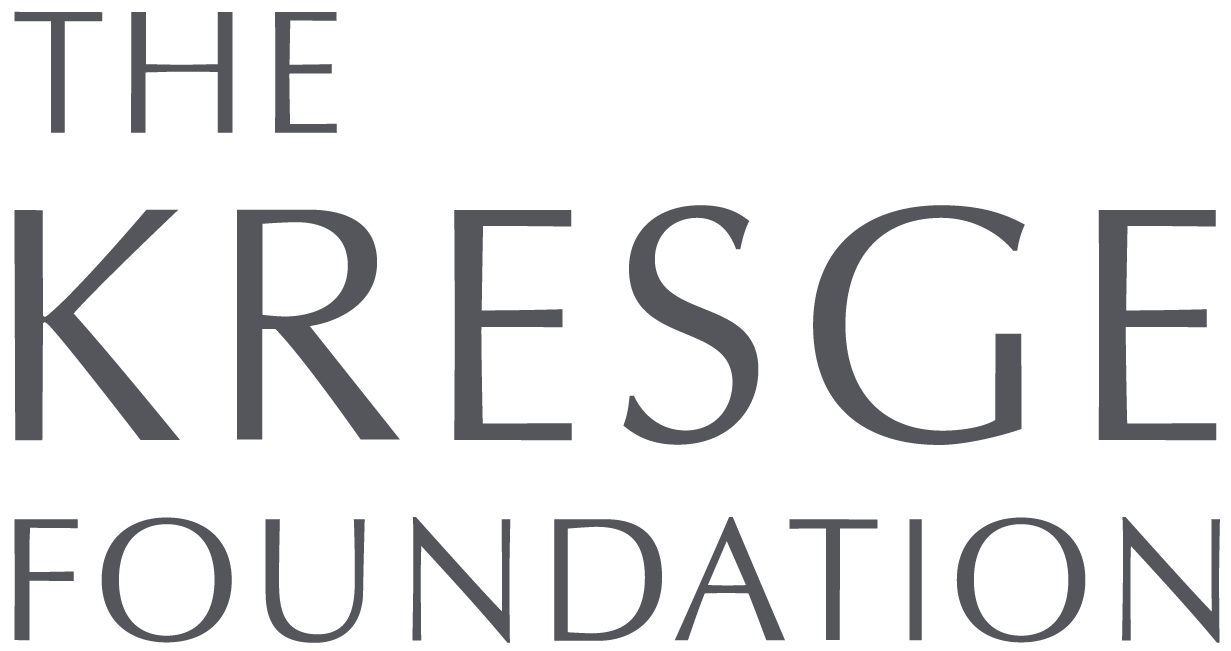


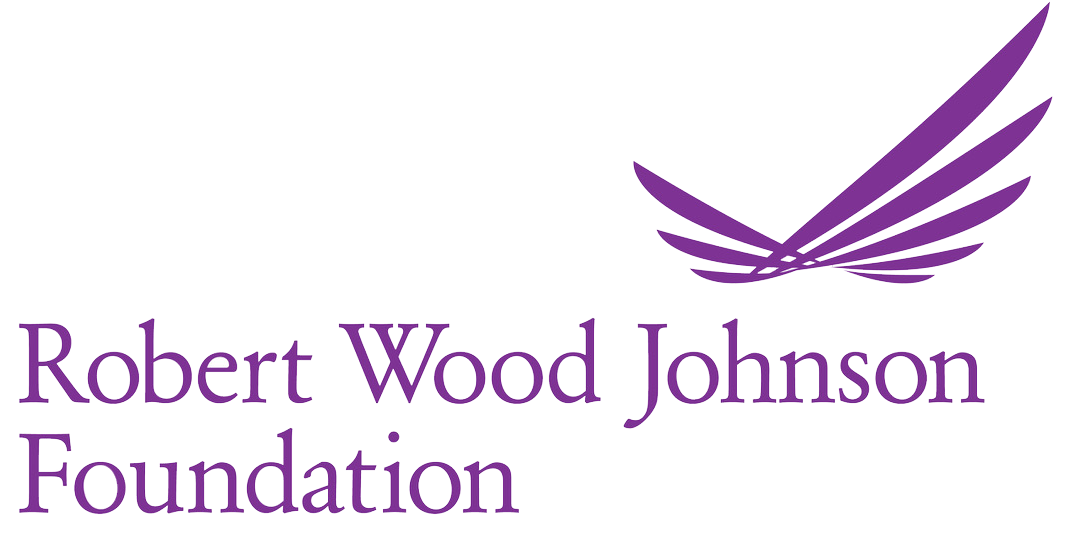


BCHC also thanks the Centers for Disease Control and Prevention (CDC), which provided funding through a cooperative agreement with the National Association of County and City Health Officials (NACCHO).
BCHC works in tandem with many organizations and wishes particularly to acknowledge close partnership in 2023 with the Association of State and Territorial Health Officials (ASTHO), Campaign for Tobacco-free Kids, Council of State and Territorial Epidemiologists (CSTE), de Beaumont Foundation, National Association of County and City Health Officials (NACCHO), Prevention Institute, the Urban Health Collaborative at the Dornsife School of Public Health, Drexel University, APHA, APHL, TFAH, and Safe States.
We thank our members for sharing many of the photos we have used to illustrate this report.
